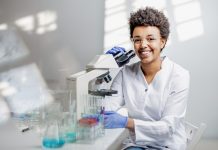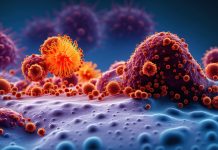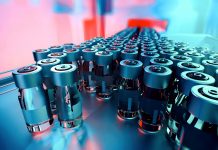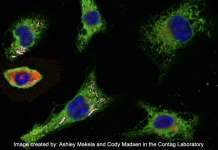Open Access Government produces compelling and informative news, publications, eBooks, and academic research articles for the public and private sector looking at health, diseases & conditions, workplace, research & innovation, digital transformation, government policy, environment, agriculture, energy, transport and more.
Home Search
en - search results
If you're not happy with the results, please do another search
Improving AI models: Teaching Artificial Intelligence to be more like humans
Researchers are fusing the human brain, knowledge and data to enhance AI models.
Flexible demand: Unlocking the energy transition
Dr Irene Di Martino from Amp X explores the global approaches to the energy transition and mass-market flexibility.
Top 5 challenges when migrating to the cloud
Firstserv’s Sebastian Tyc outlines the risks of migrating to the cloud and how to best approach them.
How well do Type 2 diabetes patients know their disease?
Researchers in Portugal look at the critical gaps in knowledge against type 2 diabetes (T2D) patients, potentially impacting their long-term health outcomes.
LGBTQ+ scientists: UK-US inclusion in STEM
Belinda Colston1, Abigail Powell1, Lauren Esposito2 and Arti Agrawal3 discuss the challenges for LGBTQ+ scientists and inclusion in the UK-US STEM landscape through an intersectional lens.
What we need to know about urinary incontinence
Christopher Jayne, MD, FACOG, URPS, MIGS, Director from Greater Houston Urogyn, walks us through what we need to know about urinary incontinence, including comment on bladder injury research.
Examining a meteor fireball: Research challenges claims of alien materials found in ocean
Researchers question the 2014 meteor fireball that was previously identified as "extraterrestrial technological".
Could coral reefs enter their fourth mass bleaching event?
As ocean temperatures reach record highs, coral reefs face the likelihood of mass bleaching events.
Who will staff the psychedelic resurgence?
Who will staff the psychedelic resurgence? Erika Dyck, Professor and Canada Research Chair in History of Health & Social Justice from the University of Saskatchewan, provides an intriguing answer to this question.
Carbon dots in forensics, environmental science, and medicine
Dr. Cecilia E. Van Cauwenberghe, from Frost & Sullivan, explains the revolutionary impact of carbon dots in forensics, environmental science, and medicine to detect, diagnose, and treat.
Transparent neural implant provides information on the brains activity
Researchers have developed a neural implant that sits on the brain surface while providing activity information deep within the brain.
Leveraging exercise mimetics as potential therapeutics
Robert Wessells, Associate Professor at Wayne State University, explores whether identifying potential exercise mimetics can deliver the benefits of exercise to patients with reduced mobility.
UKAEA implementing the UK’s fusion energy strategy
Find out in this interview how the United Kingdom Atomic Energy Authority (UKAEA) implements the UK’s fusion energy strategy.
Drug development could help treat one of the most challenging cancers
A new drug development could help those battling pancreatic cancer, one of the most challenging cancers to treat.
Vaccine non-responders and severe adverse events
Eyer Klaus, an Associate Professor at Aarhus University’s Department of Biomedicine, explores the causes, impact, and potential resolutions of vaccine non-responsiveness and severe side effects.
All you need to know about the recent UK tax cuts
In a highly anticipated announcement today, Chancellor Jeremy Hunt revealed plans for a 2p cut to National Insurance Contributions (NIC).
Science speaks out! INTERACT bridge the gap between researchers and the public
Science is useless by itself if it doesn’t speak out. INTERACT is doing excellent science, but if it stays within the science community, its science is only of academic interest; communication across sectors is imperative.
Engineered endosymbionts as novel cancer therapeutics
Satyajit Hari Kulkarni and Christopher H. Contag from the Institute for Quantitative Health Science and Engineering focus on engineered endosymbionts, which they argue is a paradigm shift in anticancer bacteriotherapy toward killing tumors from the inside out.
AI transparent medical diagnostics model unveiled
Artificial intelligence (AI) models can change the world of medical diagnostics.





















